
Mosquito Library
Mosquitoes are flying, biting pests that thrive in Greenville, South Carolina, and throughout the southern part of the United States. Learning about the many different species of mosquitoes that call our region home will give you a better understanding of these pests. The more you know about their behaviors, the easier it will be to keep them away from your yard and family.
Different Species of Mosquitoes
Aedes Mosquito
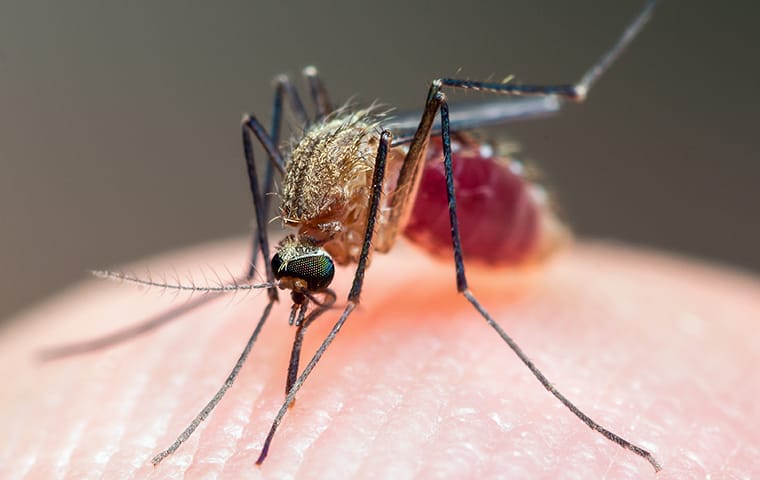
The Aedes mosquito is a small to medium mosquito that we identify from other species by the white scales on the top of the body that forms a violin-like shape. These mosquitoes form large populations around people because of the many breeding sites our properties provide them. Their females like to lay their eggs in containers- tree hollows, empty flower pots or buckets, untreated water features, and clogged gutters are common breeding sites.
Like all other mosquitoes, the male Aedes mosquito does not consume blood meals. Only the female bites humans and animals; they require blood meals to produce their eggs. Female mosquitoes ingest blood and become infected with bacteria, viruses, and parasites. Aedes mosquitoes are primary vectors of yellow fever and the Zika virus. Controlling populations of Aedes mosquitoes is critical to preventing mosquito bites and the spread of disease.
Controlling Aedes mosquitoes is vital because of how aggressive they bite. Unlike most mosquitoes that are active at dusk and dawn, they remain active and bite during the day. When feeding and breeding in our yards, they will deliver relentless, itchy bites and drive people back indoors. To minimize their numbers, reduce areas of standing water on your property and partner with us so we can complete full yard treatments that focus on treating breeding sites. Call today to learn more about mosquito control in Greenville, SC.
Anopheles Quadrimaculatus Mosquito
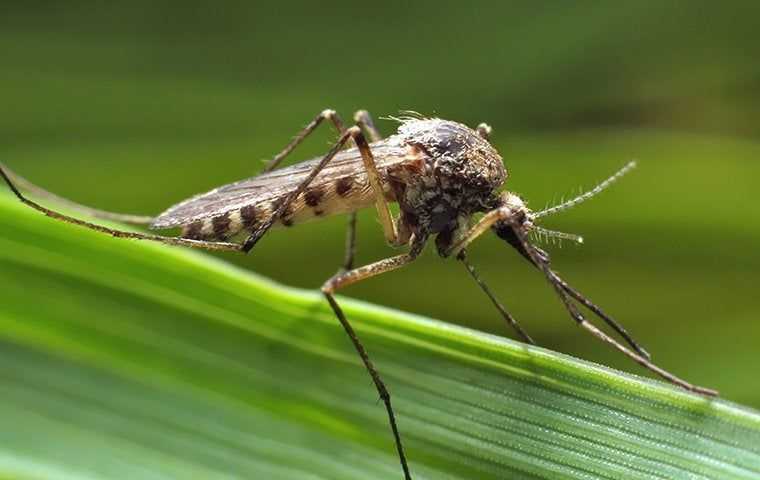
Living in large numbers throughout the eastern United States, Anopheles quadrimaculatus are large mosquitoes with four identifying dark spots on their wings. They are dark mosquitoes with dark brown or black hairs covering their bodies. These mosquitoes are best known for being essential vectors of malaria, dog heartworm, and other pathogens that make people and animals ill.
The female mosquitoes of these species lay eggs on the surface of freshwater ponds, streams, and lakes. Another interesting fact about these mosquitoes is that they lay their eggs in areas prone to flooding because the eggs can survive 28 days without water. Their eggs are unique because they have floats on either side of them that allow them to stay on the surface of the water.
A natural way to get rid of mosquitoes in your yard includes repairing low-lying areas on your property that will allow rainwater to pool. You can also plant plants that deter mosquitoes on your property, like marigolds, citronella grass, and lavender. To keep mosquitoes away from eating and sitting areas screen in porches and decks. The most effective way, however, to control mosquito numbers is to partner with a local professional. For the most effective mosquito control possible, call Dan The Mosquito Man to treat your yard and reduce mosquito numbers on your South Carolina property.
Asian Tiger Mosquito
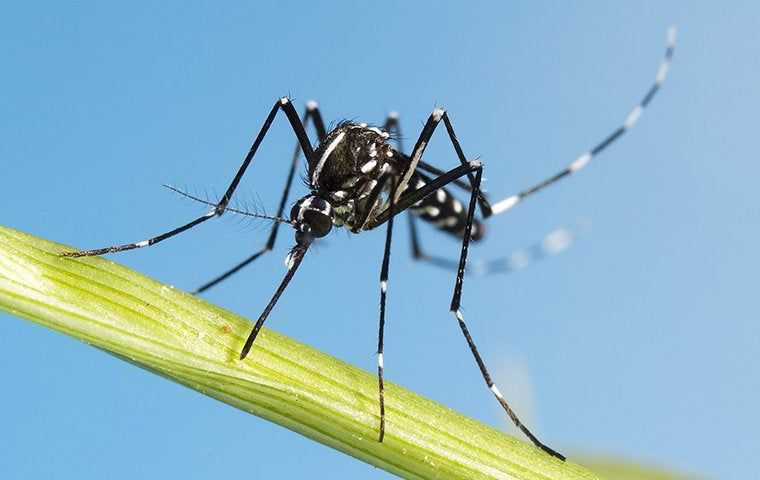
The Asian tiger mosquito received its name because they are aggressive daytime biters with a tiger-like stripe running down their heads and backs. They also have white markings on their legs and body. An interesting fact about these mosquitoes is that they were introduced into the United States in the 1980s in a shipment of tire casings.
Reducing the populations of these mosquitoes and being proactive in keeping them away from your yard and family is essential because of their ability to spread life-altering diseases like La Crosse encephalitis and West Nile virus. Furthermore, these mosquitoes are persistent daytime biters that can significantly impact people's ability to enjoy outdoor spaces. Being repeatedly bitten by blood-feeding mosquitoes is no one's idea of a good time.
Asian tiger mosquito females lay their eggs on top of the water that collects in natural and artificial containers. In conjunction with regular mosquito control treatments performed by a professional, eliminating areas of standing water from your property can go a long way in controlling these biting pests. Remove tree stumps, hollow trees, and yard debris from your property. Keep gutters free of the debris that pools rainwater. Store containers that collect water upside down when not in use and regularly empty and refill with fresh water birdbaths and wading pools.
Culex Species Mosquito
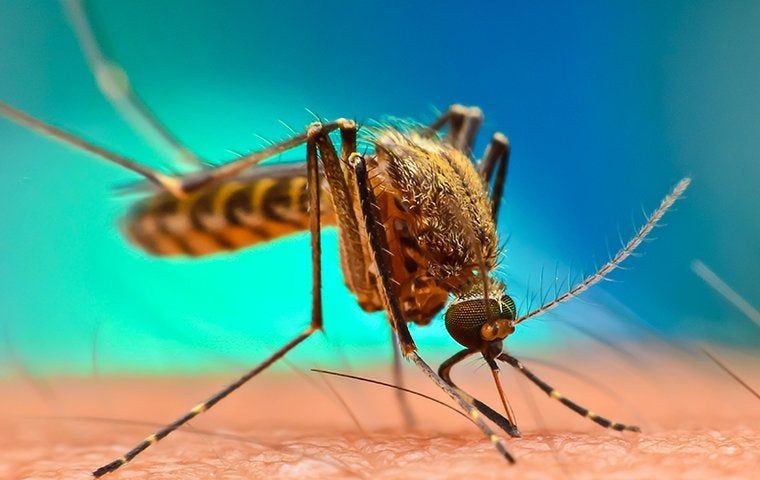
Culex mosquitoes are a widespread type of mosquito, often called the common house mosquito. Like other mosquitoes, they are a threat to us because of their ability to spread disease by consuming blood meals from various human and animal hosts. Culex mosquitoes are small and vary in appearance depending on the exact species, but typically have a gray body covered in whitish, green, or blue scales.
These mosquitoes love to hang out in habitats that offer them warmth, moisture, and standing water. South Carolina properties with or near ponds, marshes, drainage ditches, and wooded areas are most susceptible to culex mosquitoes. Other things that attract these mosquitoes to our yards include dense vegetation where they can rest during the middle of the day and breeding sites (areas of standing water).
Culex mosquitoes are most active at dawn and dusk, making spending time outside during the evening hours difficult. Because of culex mosquitoes, gardening, eating outdoors, and spending time around your pool can be impossible. To learn more about these common South Carolina mosquitoes, including how we can work together to reduce their populations, please call us today!
Culex Quinquefasciatus Mosquito
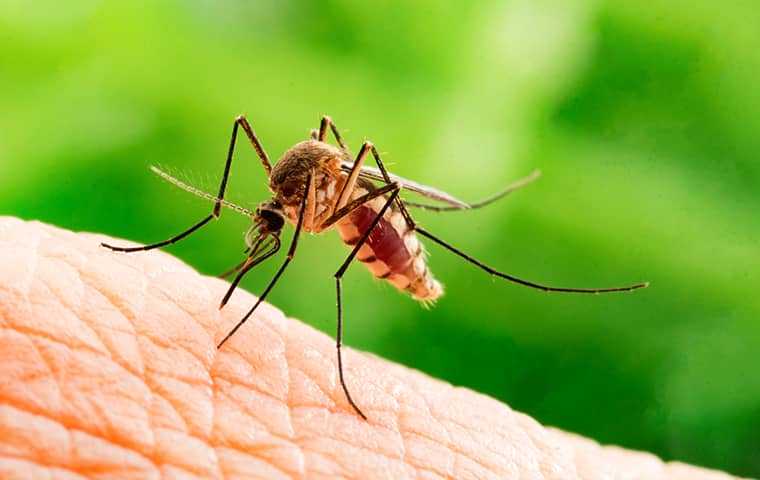
The Culex quinquefasciatus (southern house mosquito) is a sub-tropical mosquito species that live successfully throughout the southern portion of the United States. We identify them by their medium size and brown bodies with lighter heads. These mosquitoes are active at night when the females fly around, searching for stagnant water to lay their eggs.
Male and female Culex quinquefasciatus mosquitoes feed on plant nectar, then after mating, the females consume blood meals to create their eggs. After the females lay their eggs on top of stagnant water, they develop into larvae in about 48 hours. The new larvae live in the water for around five days before developing into pupae. The pupae develop into new flying, biting adults two to three days later.
Mosquitoes are such a problem in our South Carolina properties, not only because our properties often offer them plentiful breeding sites but also access to human and animal hosts. The more mosquitoes on your property, the more chance there is to come into contact with a mosquito infected with a disease. To learn more about keeping mosquitoes away from your property using our pet, family, and environmentally friendly treatments, reach out to us today.

Hear From Our Happy Customers
At Dan The Mosquito Man Pest Control, your satisfaction is our priority! See for yourself what our customers have to say about working with us.
-
“Amazing service and really nice people who get the job done.”- Nolan Zercher
-
“Very professional, knowledgeable, showed up within a days notice & very excited to be working with a company with such great reputation!”- Greyson K. Wilson
Dan The Mosquito Man Pest Control's Blog
Read All The Information You Need On Mosquito Control
Want all the latest news or updates? Browse through our blog to read our most recent posts and featured articles.